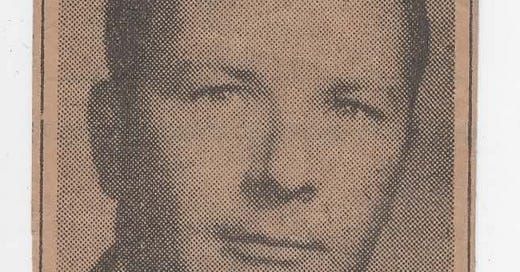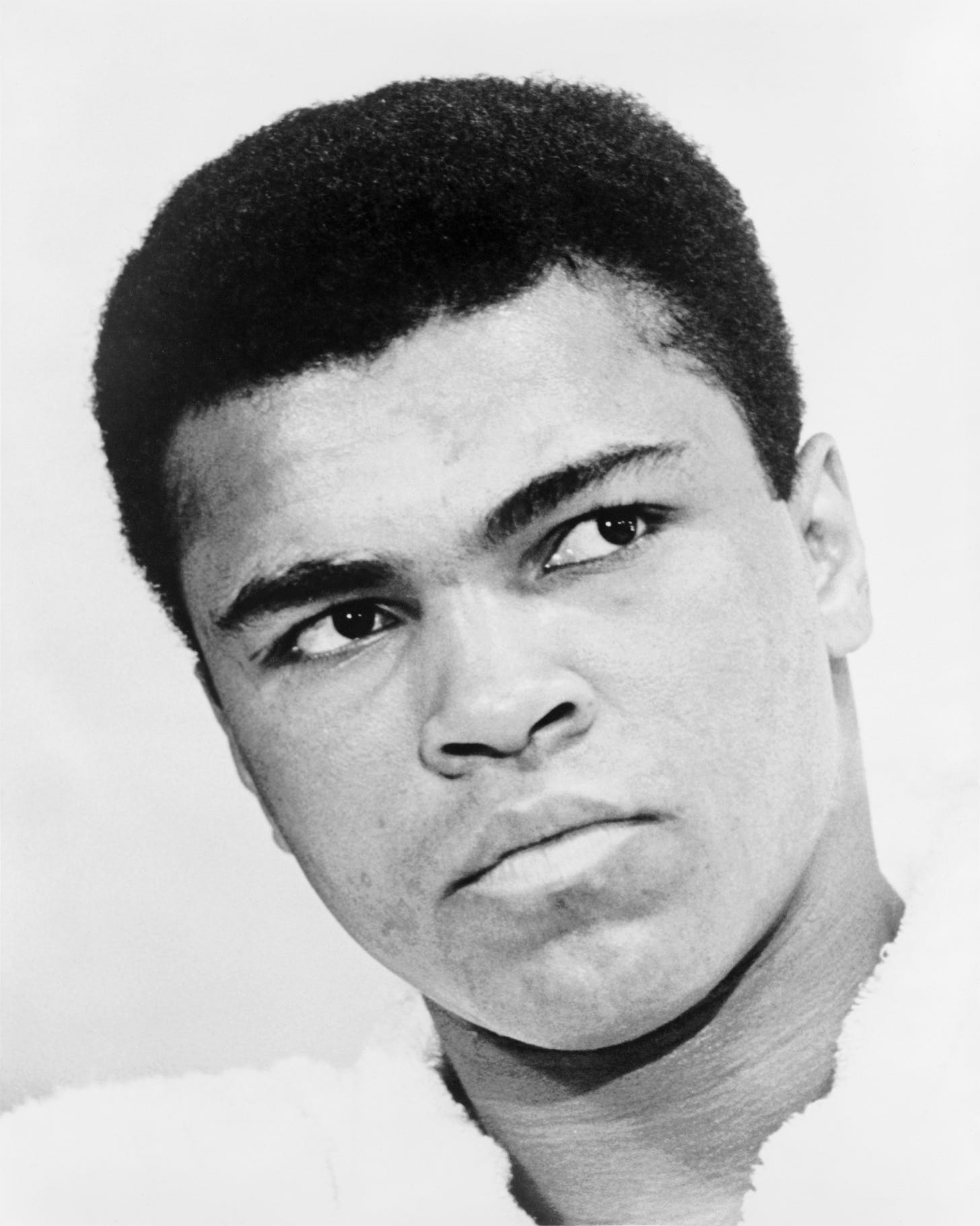Muhammad Ali
Muhammed Ali, heavyweight boxing champion, was convicted in 1967 for refusing to be drafted for the war in Vietnam. Now facing a 5-year prison sentence, lacking a passport, and socially alienated, Ali turned to social activism and embarked on a college tour to lend his voice and perspective to the anti-war movement (source).
As I was Dean of Men at George Washington University when Ali arrived on the campus, I wrote a a letter to Eric Mink having just read his article on Ali’s stop at GWU. Mink is a freelance writer and editor who teaches film studies at Webster University and a former columnist for the St. Louis Post-Dispatch and the Daily News in New York. Contact him at ericmink1@gmail.com.
Dear Eric:
I read your piece about your having heard Ali speak in 1969 at George Washington University, with interest. I, too, was there, and no less impressed with the man. I was, in fact, Dean of Men there at the time, and only two years older than he was. I was directed to make myself present at the event and monitor things, as part of my job. I contacted the local student leaders of the event and was escorted backstage before the speech.
In a small ready-room, I was introduced to the man himself. He was dressed in a nice suit and was sitting on one end of a bench in the center of the room. On the other end of the bench was a reporter from the University newspaper, interviewing Ali for a story. There might have been two or three other students in the room at the time.
The interview was already underway when I entered, so after the greeting, I stepped to the side to listen to the remainder of the interview. Among the questions the reporter asked was a reference to Ali’s cover photo on Sports Illustrated that had been published just a short time before. There was chit chat about the number of times Ali had been on that cover, and at that point, Ali opened his briefcase, which was sitting on the bench mid-way between the two men. From it, he took out a copy of that magazine with the photo in question on the front cover. [He had at least a half dozen copies in his briefcase, by the way] The photo illustrated the speed of Ali’s jab, which as you know, he described as ‘a sting like a bee.’ When the reporter asked, ‘just how fast is it?’ Ali took off his suit coat and sat down on one end of the bench, with legs on either side, several feet from the student-reporter. He handed the reporter the magazine and asked him to hold it with both hands in front of him, chest high. There was perhaps four to five feet between them. Then, while speaking his usual fight-banter, he didn’t move — except for his fist, which flicked out and snapped against that magazine with a speed that was not only almost impossible to see, but which was eye opening to say the least. Then, he did it again. The reporter, and all of us, were speechless.
The student leader who had taken me back then explained that after the address, Ali was going to be the guest of the Black Student’s Organization in another building a short distance away, and that I was invited to attend. I said, sure. Then Ali gave his address, which you heard. I can’t recall the details as you were able to do, but I do remember being impressed with his speaking talent and his ability to charm his audience while informing them of his topics.
Some minutes after the address, the BSO leaders and Ali and I met on the sidewalk, next to a Cadillac sedan driven by one of the students. It was only two blocks, as I recall, but they wanted to make a good impression. As the small group got in the car, it seems that there was only space for one left, and Ali and I were left standing next to the open door. I offered to walk, but Ali said, ‘Naaw. You get in first.’ And he proceeded to follow me and ended up in my lap. That, of course, brought out the laughs from the other five passengers. There’s this white guy, squashed under world-renown heavyweight champion, for the three minute ride to the reception party. If it did nothing else, it certainly broke the ice. I recall his making some reference to the ride when he told a joke about Oreo cookies.
I think I was the only white person in the room, but Ali, in his usual fashion while relating stories of his struggles and telling very funny stories of how black and white things can be turned upside down, as in ‘there’s nothing better than eating all the white icing off a cake to get at the best part — the chocolate,’ never once made me feel anything but accepted in the group. He left the campus that day, heading off to another campus engagement somewhere, and left behind good feelings, lots of encouragement and good wishes for success for our students, and an example of what a true gentleman can be — even when dealing with forces intent on bringing him down outside the ring. He will be missed.
Dr. Paul Sherburne, Ed.D.
Dean of Men, George Washington University 1968-71
Audio of Paul sharing this story with his younger daughter



